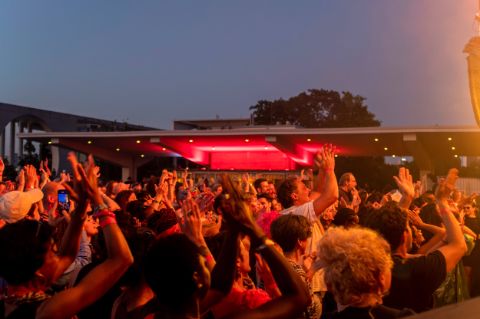Sonic Pluriverse Festival 2023
Congorama
Concerts, DJs, Listening Sessions, Workshops, Lectures
2.6.–9.9.2023

Photo: Mathias Völzke
A summer full of music: The new festival series Sonic Pluriverse starts with Congorama, a musical journey with three locations as sonic compass which all have the word “Congo” in their name.
Congorama combines concerts, DJ sets, workshops, listening sessions and a festival. The first edition of the new festival series Sonic Pluriverse is oriented on three locations in the world which carry the word “Congo” in their name: the Congo River, Congo Mirador, a village in northern Venezuela, as well as Congo Square in New Orleans. Separated by great geographical distances, all three locations are blessed with incomparable sonic and cultural riches and share many things in common which spring from their violent colonial past. Congorama invites the public to engage with the sonic knowledge and history of these geographies and experience how sound can generate and connect different worlds.
The Sonic Pluriverse Festival 2024 will take place 4.–26.7.2024. More information...